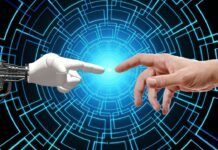– An article by Ms. Bhavna Udernani, MD, Adhaan Solution Pvt Ltd.
The integration of artificial intelligence (AI) and machine learning (ML) into human resources (HR) operations has the potential to revolutionize the way organizations manage their workforce. These technologies can automate routine tasks, provide valuable insights, and personalize the employee experience in ways that were previously impossible.
One of the key areas where AI and ML are making an impact in HR is recruitment. The use of AI and ML in recruitment can automate tasks such as resume screening and candidate matching, saving time and increasing efficiency. By analyzing candidate data, AI and ML can also provide insights into identifying the best candidates for the job, even from unconventional sources such as social media. This not only speeds up the recruitment process but also ensures that organizations are able to identify and attract top talent.
Another area where AI and ML are making an impact is employee development and engagement. AI-powered chatbots and virtual assistants provide employees with instant access to information and support, while AI-powered performance evaluations provide valuable feedback and coaching. These technologies can not only make the employee experience more seamless but also help to improve the overall performance of the organization.
The potential of AI and ML in the future of talent management is vast. Predictive analytics can be used to identify potential skill gaps among employees and predict future workforce requirements. This can inform workforce planning and development strategies, ensuring that the organization has the right talent in place to meet its future needs. Furthermore, organizations will be able to forecast employee turnover and act proactively to retain valuable talent. With the help of predictive analytics, HR professionals can identify at-risk employees and develop a strategy to keep them engaged and motivated.
Another area where AI and ML are expected to make an impact in the future is in creating personalized employee experiences. With the help of AI and ML, HR professionals can provide employees with a personalized and tailored experience that caters to their unique needs and preferences. From targeted training and development opportunities to customized benefits and perks, AI-powered personalization can lead to increased employee engagement and retention.
However, with the integration of AI and ML, there are also certain challenges that need to be addressed. One of the most significant concerns is the risk of bias in the algorithms used to automate HR processes. This can be caused by a lack of diversity in the data sets used to train AI models, or by a failure to account for real-world bias in the data. To minimize this risk, organizations need to ensure that their data sets are diverse, and that they are constantly monitoring and testing their algorithms for bias. Another concern is the potential loss of jobs as a result of automation. While it is true that some HR tasks may become automated, it is also true that new job opportunities will arise as a result. It is important for organizations to plan for this shift and provide training and development opportunities for employees to prepare them for these new roles.
In conclusion, the integration of AI and ML into HR processes presents a wealth of opportunities for organizations to improve the efficiency and effectiveness of their HR operations.






